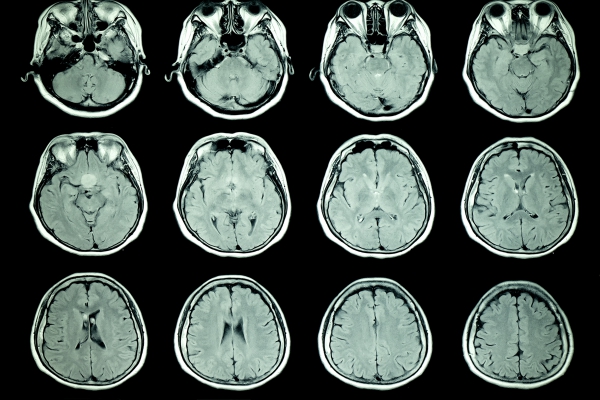What is Prolactinoma?
Prolactinoma is a benign (noncancerous) tumour of the pituitary gland that produces the hormone prolactin in excess. Prolactin causes the breast to develop and is responsible for milk production by the breast after a baby is born. The pituitary gland is a pea-sized gland located at the bottom of the brain and is responsible for the production of several hormones. These hormones play an important role in regulation of growth, blood pressure and reproduction. Prolactinoma also results in decreased levels of sex hormones- estrogen in women and testosterone in men- which may lead to infertility.
In the United States, prolactinomas account for at least 25-30% of all pituitary tumours. In addition, this tumour is the most common type of hormone-producing tumour that develops in your pituitary gland. Furthermore, it is more common in women than in men.
This condition is not life-threatening but may affect your vision, sex life and fertility amongst others. However, it can be treated by use of medications or surgery.
What are the signs and symptoms of prolactinoma?
The signs and symptoms caused by prolactinoma may be insignificant at first. However, as the tumour continues to grow the signs and symptoms may become noticeable. The excessive production of the hormone prolactin (hyperprolactinemia) may disrupt the reproductive system resulting in a decreased production of sex hormones (hypogonadism). These hormonal disturbances results in some signs and symptoms which are specific to males or females.

Signs and symptoms of prolactinoma include:
- Decreased libido: This is the loss of interest in sexual activity.
- Low bone density (osteoporosis)
- Decreased production of hormones produced by the pituitary gland: This is due to the pressure exerted on the pituitary gland by the tumour.
- Headaches
- Infertility: This is mainly caused by the excess production of prolactin which affects the ability of your reproductive system to produce sex hormones.
- Visual problems: As the tumour grows larger, it may compress the nerves associated with your vision resulting in total vision loss or partial vision loss.
Signs and symptoms specific to males include:
- Erectile dysfunction: This is when a male cannot get or keep an erection firm enough in order to have sexual intercourse. It is also known as impotence.
- Female body habitus: If prolactinoma occurs before puberty, it may result in a female body habitus and small testicles.
- Gynecomastia: This is when there is an enlargement or swelling of the breast tissues in males. However, this is rare with prolactinoma.
Signs and symptoms specific to females include:
- Menstrual problems: Prolactinoma is often associated with no menstrual periods or irregular menstrual periods due to the hormonal disturbances. If this condition occurs before puberty, these girls may get their first menses later than usual.
- Galactorrhea: This is when there is a milky discharge from the breasts even when not breast-feeding or pregnant. The milky discharge may occur upon squeezing the nipples or spontaneously.
- Hypoestrogenism: Prolactinoma results in a reduced level of the hormone estrogen which leads to vaginal dryness, painful sexual intercourse and osteoporosis.
- Acne
- Excessive facial and body hair growth


Making a diagnosis
To make a diagnosis, your doctor will first take a detailed history from you to know more about your symptoms. After the history taking, your doctor will perform a thorough physical examination to look for signs of prolactinoma. To confirm the diagnosis, your doctor may order some tests and these include:
- Prolactin level: The prolactin level is measured on more than one occasion to confirm whether your prolactin level is elevated or not. In addition, it is important not to test for the prolactin level immediately after examination of the breast. This is because stimulation of the nipples may cause a physiological elevation of prolactin.
- Pregnancy test: As absence of menses forms part of the signs and symptoms of prolactinoma, a pregnancy test is mandatory in reproductive-aged females in order to rule out pregnancy.
- Thyroid function test: This test is done to rule out any thyroid disorders as an elevated thyroid stimulating hormone (TSH) level may lead to an elevated prolactin level.
- Testosterone level: In males, the testosterone level is often low due to the excessive production of prolactin.
- Computed Tomography (CT) scan: CT scan of the head is done to assess for the presence of a pituitary tumour. This imaging technique is especially useful in the setting of bone loss or bone destruction in the pituitary area.
- Magnetic Resonance Imaging (MRI) scan: An MRI scan of the head is done to assess for the presence of a pituitary tumour. This imaging technique gives a better image than a CT scan. In addition, it can detect smaller tumours.
- Vision tests: These tests are done to determine whether the tumour has affected your vision.

What are the treatments of prolactinoma?
The goals in the treatment of prolactinoma is to return the pituitary hormone levels back to normal, eliminate the signs and symptoms and improve your quality of life. The management mainly involves medications and surgery.
The drug used to treat prolactinoma is known as a dopamine receptor agonists. It decreases the amount of prolactin being produced by the pituitary gland and may also reduce the tumour size. An example is bromocriptine. This is usually a long-term treatment. Some side effects include nausea, vomiting, drowsiness and headaches amongst others.

Surgery is usually indicated when the medications are not working. It involves removing the tumour either through your nose or through your skull- transsphenoidal pituitary adenomectomy for smaller tumours and transcranial surgery for larger tumours. Unfortunately, many pituitary tumours come back within 5 years of surgery.
Radiation therapy is usually indicated in people who do not respond to medical therapy and are not candidates for surgery.
What are the complications of prolactinoma?
If prolactinoma is left untreated, the following complications may ensue:
- Blindness
- Infertility
- Osteoporosis
- Erectile dysfunction
There are some complications related to pituitary surgery and these include:
- Diabetes insipidus: this condition is characterized by excessive thirst and large amounts of diluted urine.
- Stroke
- Meningitis: inflammation of the tissues surrounding your brain.
- Visual disturbances
Prognosis
Prolactinoma is generally associated with an excellent prognosis. These pituitary tumours usually do not enlarge over a 4-6 period in 95% of cases. However, larger tumours require aggressive treatment to prevent complications.

Source:
J. Alastair, I. and Simon, M., 2016. Davidson's Essentials of Medicine. 2nd ed. London: ELSEVIER.
Parveen, K. and Michael, C., 2017. Kumar & Clarks Clinical Medicine. 9th ed. The Netherlands: ELSEVIER.
Segu, V., 2020. Prolactinoma: Practice Essentials, Pathophysiology, Epidemiology.
Segu, V., 2020. Prolactinoma Workup: Laboratory Studies, Imaging Studies, Other Tests.
Synder, P., 2020. Clinical manifestations and evaluation of hyperprolactinemia.





